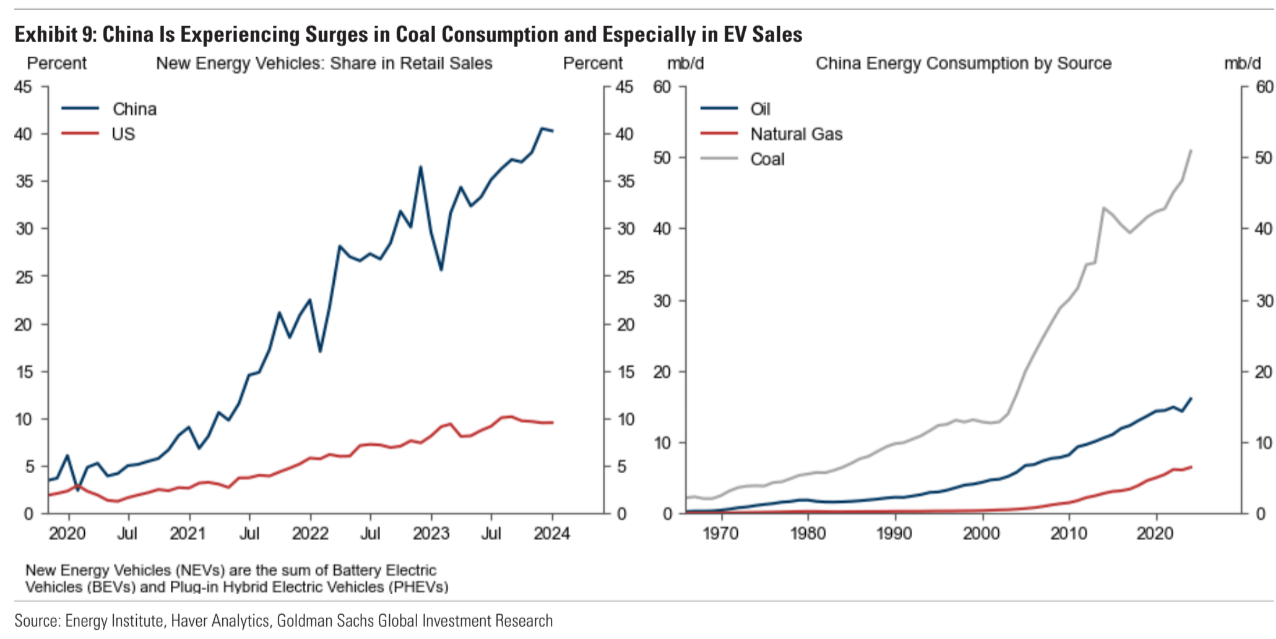Good luck saving the planet with this carbon monster devouring the future. Goldman:
With most new taxis in Beijing now EVs, and the share of NEVs in China car retail sales surging to 40%, the speed of China’s r(EV)olution is top of mind, and forms a striking contrast with headlines about EV excess inventory and production cuts in the US.
Here’s the kicker. China is not running this green fleet on renewables. It’s running on coal:

More:
At the macro level, our conversations suggest that policymakers’ focus on security of energy supply and on reducing oil imports is the key driver. While leadership in EV production and environmental concerns likely play a role too, the surge in China coal demand suggests that energy security is the big driver of China’s EV push. At the micro level, many Chinese consumers now prefer EVs given significant variable cost savings, the quality of charging infrastructure, and a “cool/smart” image that influencers amplify on social media given the integration with electronic screens, and quiet engines.
We estimate a moderate drag on China 2024 oil demand growth from the rise in EVs ofaround 0.15mb/d. Some of China’s major oil consumers believe that China roadtransportation fuel demand may peak in 2025, while petrochemical demand(Naphtha/LPG) will continue to grow until peak oil demand is reached around 2030 givenChina’s goal to start lowering carbon emissions from 2030. While we are generally skeptical about simply translating emissions goals in demand forecasts and China’s peak oil demand forecasts have been significantly revised upwards previously, the surge in EVs and China’s top-down governance suggest that such policy goals deserve more weight in forecasts than in the OECD.
I’m not at all saying that Australia should give up on decarbonisation.
But, on the one hand, we have the US running its gas future through national interest calculations.
While on the other, China is doing the same with EVs and coal.
It takes a special kind of idiot to ignore this decoupling and rely overly upon both.

